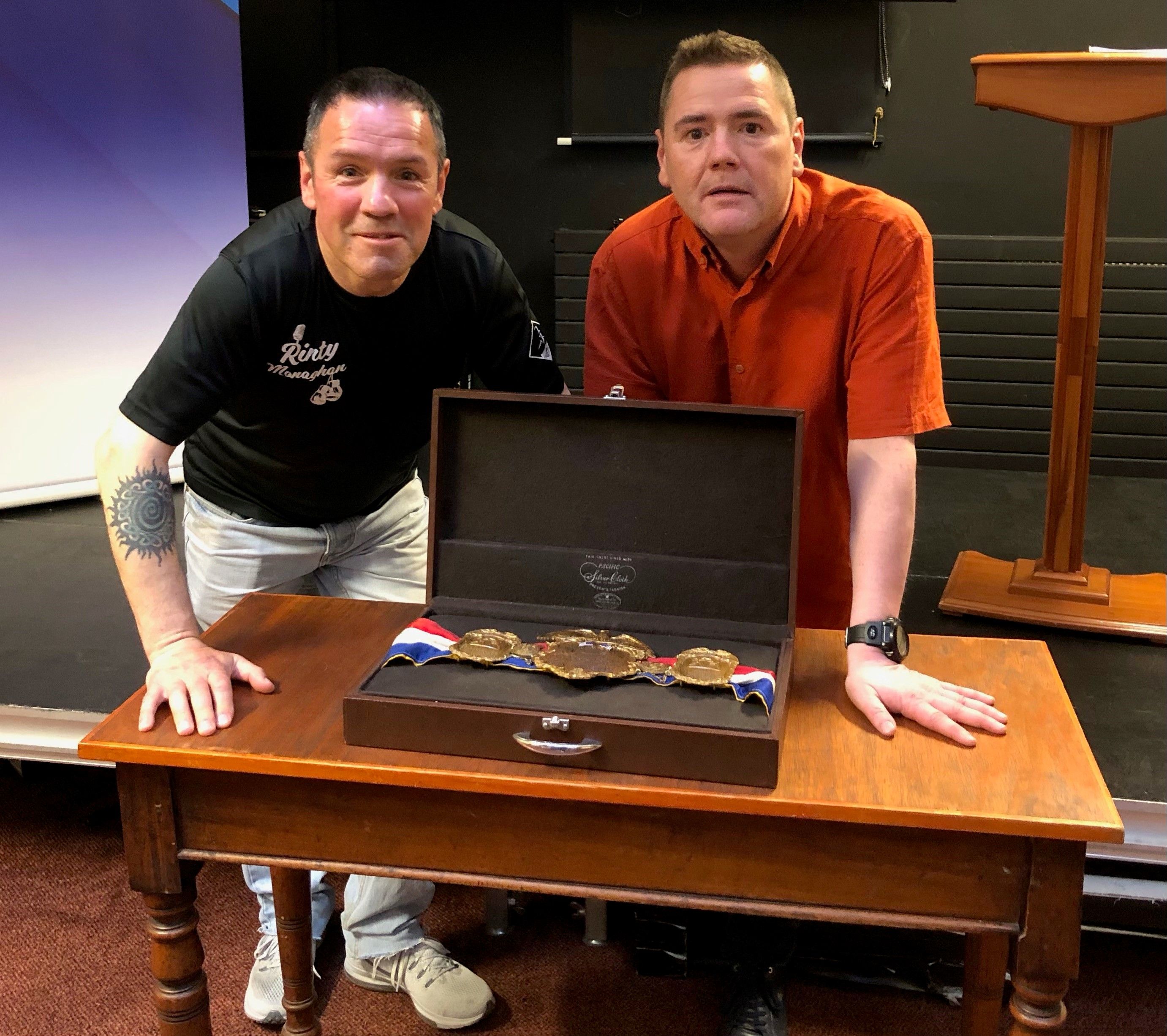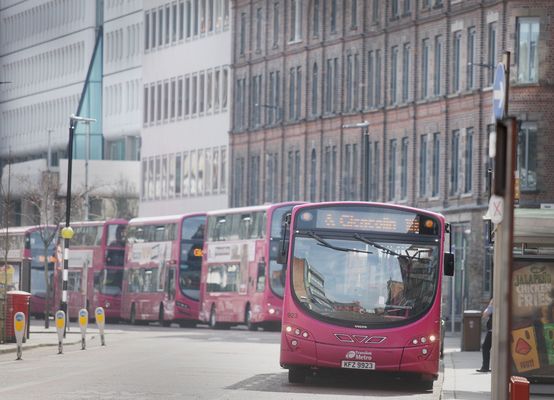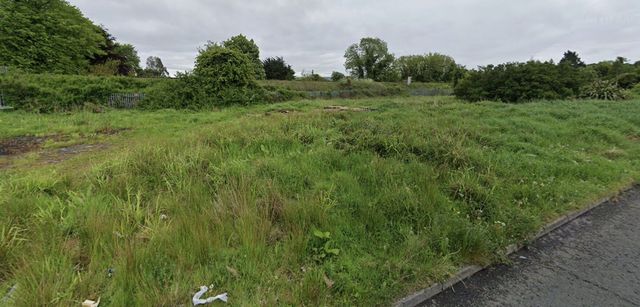Linenhall Library hosted a fantastic event on Wednesday about the tremendous contributions the city of Belfast has made to the world of amateur and professional boxing.
Renowned Boxing historian Barry Flynn gave a talk titled ‘From the Terraced Streets to the World Stage’ and in attendance were notable boxers from the golden years of Belfast Boxing, including former professional boxer Eamon McAuley, who also brought the belt his Great-Uncle, Rinty Monaghan won to become the world flyweight champion in 1948. Also in attendance was former British bantamweight champion Paddy Maguire.
Flynn spoke about how boxing was ‘woven into the social fabric of Belfast’ and talked about Belfast boxing’s origins, beginning with renowned Queensbury rules fighter and the one time most famous boxer in the world, John L Sullivan’s visit to Belfast’s Ulster Hall in 1887.
Seeing how popular prize fighting had become, Flynn spoke of how one Irishwoman, Clara ‘Ma’ Copely, who came from a family of circus performers seized on the idea and began holding prize fights between local fighters in Belfast’s old Chapel Fields, which was originally waste ground opposite the old St Malachy’s Church in the centre of town. Such was the draw of the fights that the alley behind the Ulster Hall was then referred to as ‘thick ear alley’ on account of how many young men left the fields with warm lugs after fighting for prize money.
Fights in those days didn’t have any of the rules boxing has today, and regularly featured up to six men brawling it out with three referees at the one time! It was in this arena that boxers and Belfast hardmen such as Rinty Monaghan, Silver McKee and Buck Alec first made names for themselves.
By the 1920s and 1930s, the Ulster Hall which was built to include orchestral music, dancing and plays to give ‘culture and refinement’ to the working classes was not drawing in enough money to stay afloat, due to the establishment of cinemas and other forms of entertainment. It was boxing that came in and filled that void.
Muhammad Ali eyes up Paddy Maguire during his trip to Belfast in 1972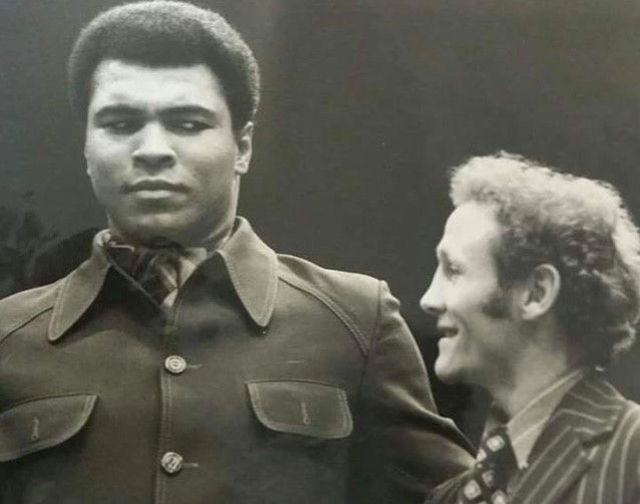
Over the years the Ulster Hall witnessed some amazing fights which have gone down in boxing legend. It was in the Ulster Hall that Derryman Billy ‘Spider’ Kelly lost to Glasgow’s Charlie Hill in 1956 in front of 16,000 people in a controversial decision that caused a mass riot. The result of which nearly ended up seeing the sport being banned for good within the city, but the move to end boxing narrowly lost, by a single vote, and Belfast boxing continued.
By the 1950s and 1960s, Belfast had truly caught the boxing bug, with fights at the Glentoran Oval selling out over 16,000 people, and 30,000 people who came to watch fights at Solitude.
Flynn’s talk was full of interesting stories about each fighter, including their personal backgrounds, and the main theme throughout was that whether the fighters were from the Pound Loney, Falls Road, Ardoyne or the Shankill, boxing was a way in which these working class lads were able to become as big as rockstars, and were able to travel all around the world, which was monumental in those days.
There were tales of grudge matches, the most notable being between John Caldwell from the Falls Road and Freddie Gilroy from Ardoyne.
The men had once been best friends growing up, but backstage fixing between their management teams engineered a situation wherein bad blood developed, making way for an epic fight in the King’s Hall in October 1962. Although Freddie Gilroy won the match, he never returned to fighting afterwards.
Both men also suffered from predatory managers who fleeced them out of their hard earned prize money.
We were told how John Caldwell was promised £18,000 for a fight, but was swindled when his management failed to mention it was 18,000 Brazilian pounds, the equivalent of only around £800. Such was the misfortune of John Caldwell that he ended up being a street sweeper in Canada before returning home to Belfast to work as a taxi driver.
Barry Flynn spoke how instances like this were common, and described the tragedy of a lot of Belfast boxer’s being akin to ‘salmon swimming in a sea of sharks’.
Belfast’s Olympic boxing history was also discussed, with praise being given to John McNally, who passed away in April 2022, and who won a Silver medal for Ireland in Helsinki in 1952 by a split decision. Other boxers such as Jim McCourt, who won a Bronze in Tokyo in 1964 and Gold in the 1966 Commonwealth Games.
Paddy Maguire, who was at the talk, was also spoken about, including how he fought on the undercard when Muhammad Ali came to Belfast in 1972, and his British bantamweight championship win in 1975.
Flynn explained how the conflict in the North profoundly affected the sport, ensuring there were virtually no boxing fights in the city which lived by the sport from around 1969 to 1985.
Paddy Maguire (centre, seated) with his family at the talk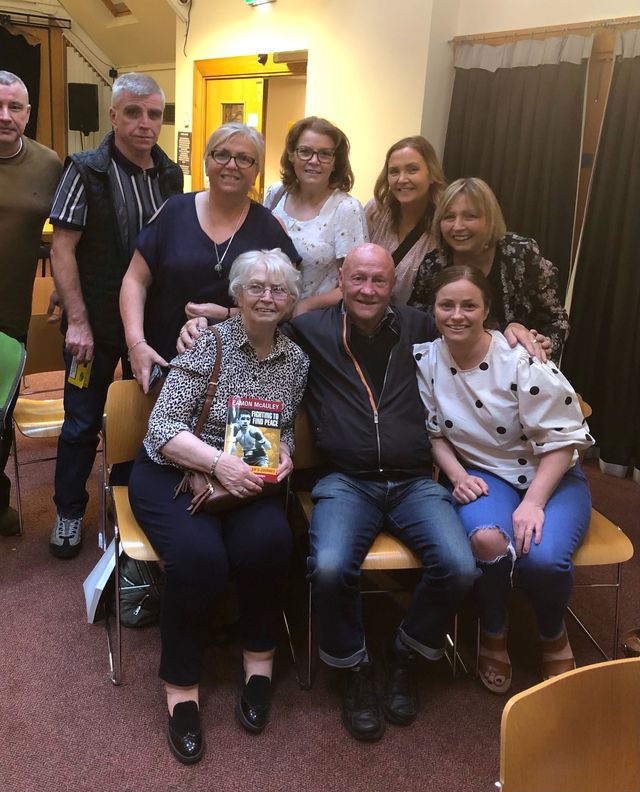
However, several notable fights did take place, such as when Shankill boxer David Larmour took on Hugh Russell in a bloody brawl, which left referee Mike Jacobs covered in blood. So soaked with blood was his shirt, that when he returned to London and told them he’d been in Belfast, that he was arrested and questioned on coming back from Belfast with such bloody clothes!
Barry Flynn ended the talk by paying homage to some of Belfast’s best fighters and their contribution towards the sport, and there were brilliant stories told about each one he mentioned, including Terry Milligan, Gerry Hassett, Walter Henry (who later fought for Canada and now has a park named after him in Ontario), Martin Quinn and Eamon McCusker.
Speaking after the event, Barry said: “We’re here to remember a whole generation of boxers, particularly from West Belfast who were a great pride to the city.
"It’s a timely gesture to have an event to remember the glory that they brought to the streets which they were from. We hope their names will live on for future generations.
"When we lost John McNally in April, it was a massive loss. He was a proud Pound Loney man who went to the Olympics and won Belfast’s first Olympic medal. We want to make sure people in future generations remember their legacy.
"It’s a pleasure to see some of the boxers here tonight with their families and reliving some great memories and bringing a smile to their faces.”
